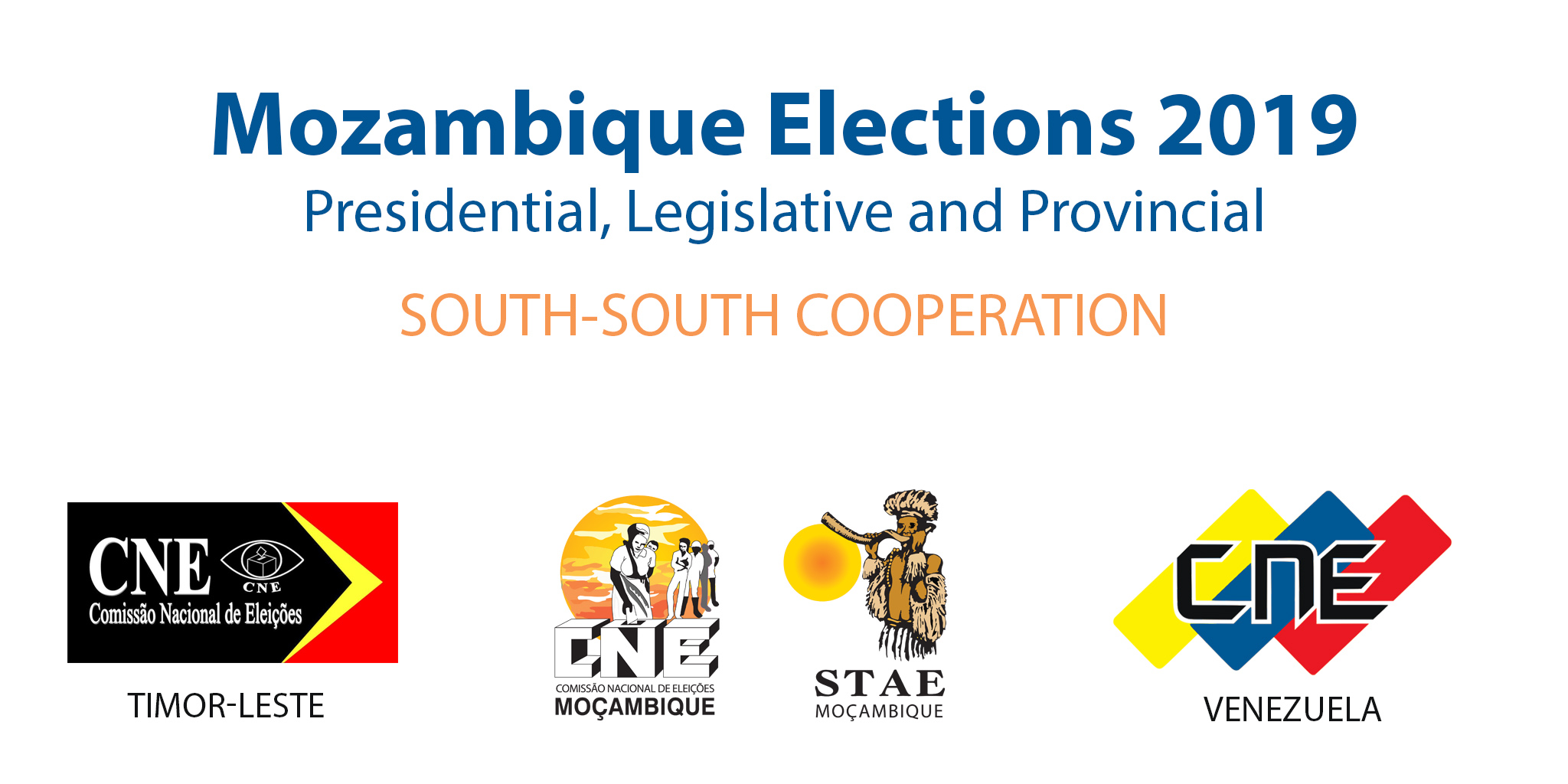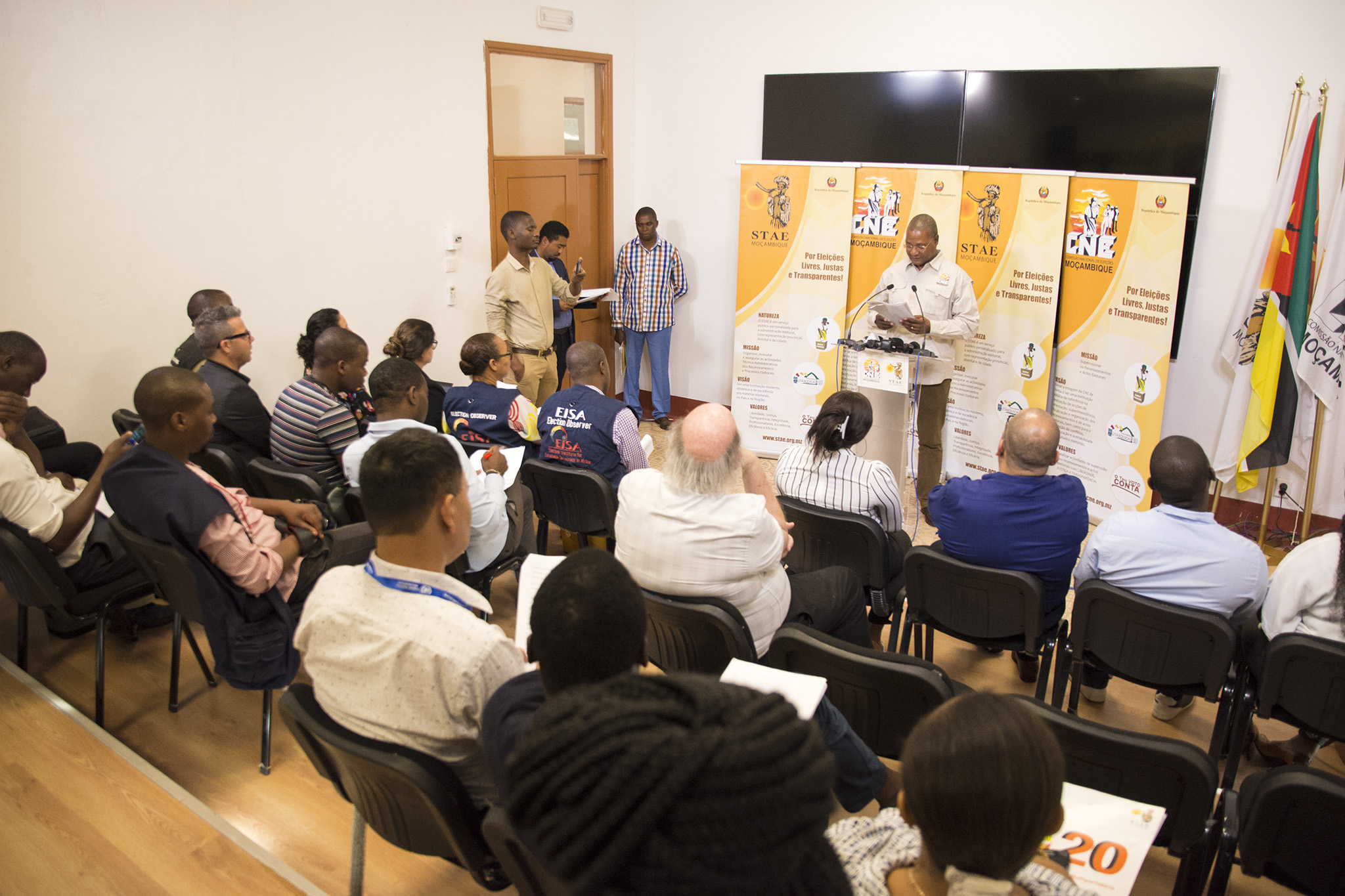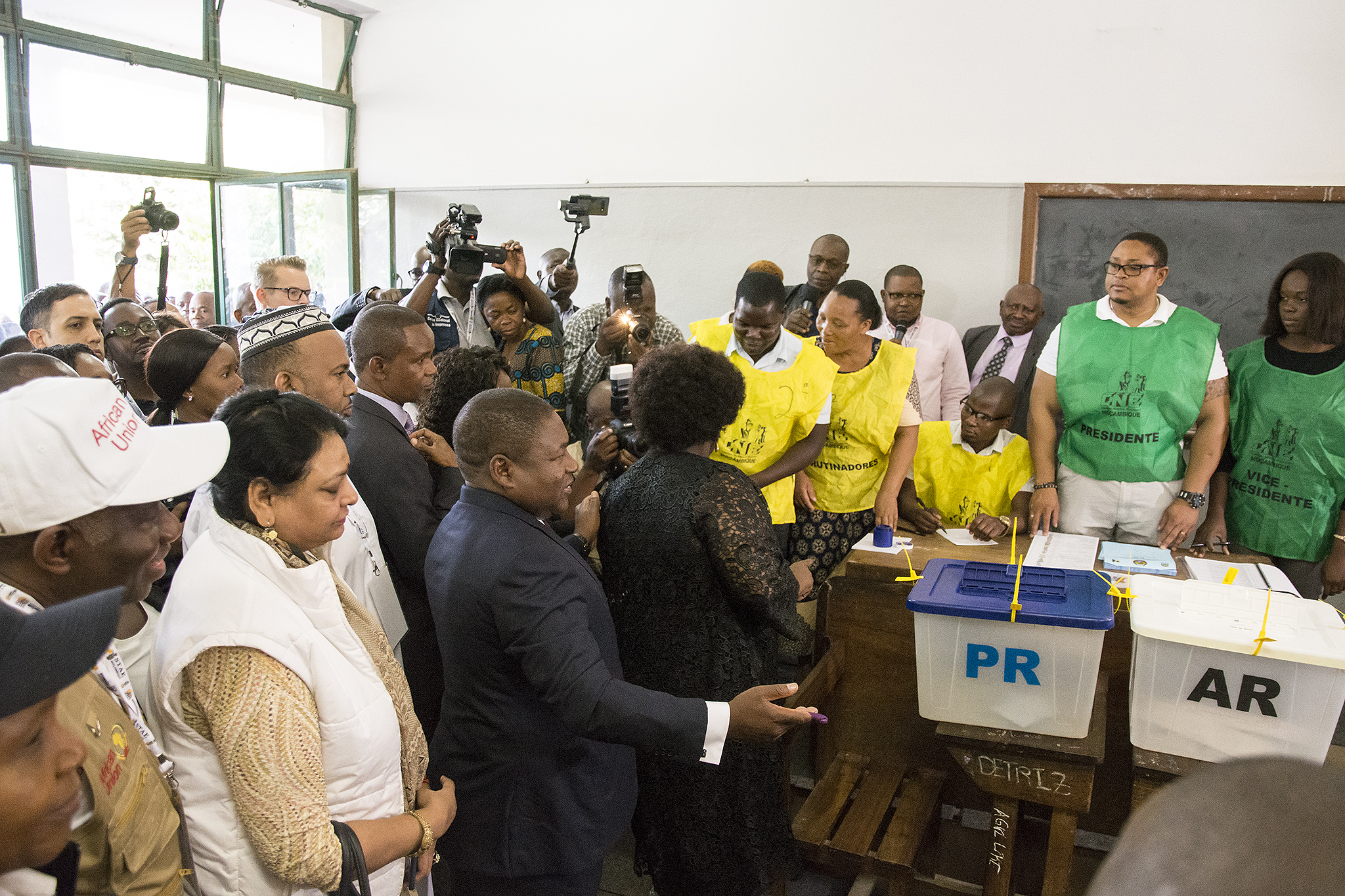 Electoral Transparency and Credibility
Strengthening the capacity of Mozambican electoral management bodies to enhance the transparency and credibility of electoral processes
Electoral Transparency and Credibility
Strengthening the capacity of Mozambican electoral management bodies to enhance the transparency and credibility of electoral processes

Challenges
Towards a Solution
The Electoral Transparency and Credibility project provides tailored technical assistance to Mozambique’s EMBs to strengthen their capacities through an electoral cycle approach, contributing to the creation and maintenance of an environment for inclusive and responsive electoral and political processes. It seeks to strengthen the capacity of a broad range of stakeholders to ensure the sustainability of and consolidation of democracy at local and national levels.
The project is implemented by Mozambique’s National Electoral Commission (Comissão Nacional Eleitoral - CNE), the Technical Secretariat for the Administration of Elections (Secretariado Técnico de Administração Eleitoral - STAE) and the United Nations Development Programme (UNDP). The project is supported by the Governments of Canada, Finland and Norway and the Department for International Development of the United Kingdom.
The project started during the last quarter of 2018 with specialized training and support provided by UNDP to STAE, the Supreme Court and the National Police. To achieve transparent 2019 presidential, legislative and provincial electoral processes in Mozambique, two electoral management delegations from Timor-Leste and three from the Bolivarian Republic of Venezuela were invited to exchange experiences. The delegations arrived in Mozambique a week before election day and during their monitoring visits were able to meet political parties, presidential candidates, civil society organizations and other electoral stakeholders. Before leaving, after the announcement of the preliminary election results, the delegations presented their observation findings to the Mozambican EMBs. Overall, the delegation visits contributed to the effective management of the elections and was eventually validated by other observation groups as well managed.
These exchange programmes helped all the EMBs involved enhance their capacity, through a collective learning process. For instance, Timor-Leste, which is just beginning to conduct and manage elections, had an opportunity to strengthen its own national electoral management system and the Bolivarian Republic of Venezuela, which has a similar electoral management system, learned from the Mozambican experience before its own 2020 parliamentary elections.
Such cooperation between EMBs is sustainable as it can substantially enhance the transparency of electoral processes and assure credibility. The costs involved in these programmes are generally not high and mutual agreements between EMBs can further contribute to the effective management of elections.
Contact Information
Countries involved
Supported by
Implementing Entities
Project Status
Project Period
Primary SDG
Secondary SDGs
Similar Solutions
| NAME OF SOLUTION | Countries | SDG | Project Status | |
|---|---|---|---|---|
A-Card Initiative |
Mozambique, Timor-Leste, Venezuela (Bolivarian Republic of) | 10 - Reduced Inequalities | Completed | View Details |
Accelerating Digital Transformation in All Ministries in Bangladesh Promoting the rapid design and implementation of plans to digitize all ministries and subordinate government institutions in Bangladesh |
Mozambique, Timor-Leste, Venezuela (Bolivarian Republic of) | 10 - Reduced Inequalities | Ongoing | View Details |
Accelerator Labs Network Following collective intelligence methods to address emerging sustainability challenges and the growing demand for local solutions |
Mozambique, Timor-Leste, Venezuela (Bolivarian Republic of) | 08 - Decent Work and Economic Growth 13 - Climate Action | Ongoing | View Details |
Accessible Digital Textbooks Promoting inclusive education through Accessible Digital Textbooks |
Mozambique, Timor-Leste, Venezuela (Bolivarian Republic of) | 10 - Reduced Inequalities | Completed | View Details |
Adaptation of 3PA to Urban and Displacement Settings Using South-South and Triangular Cooperation in World Food Programme Three-Pronged Approach capacity strengthening through cross-learning initiatives |
Mozambique, Timor-Leste, Venezuela (Bolivarian Republic of) | 02 - Zero Hunger | Completed | View Details |


